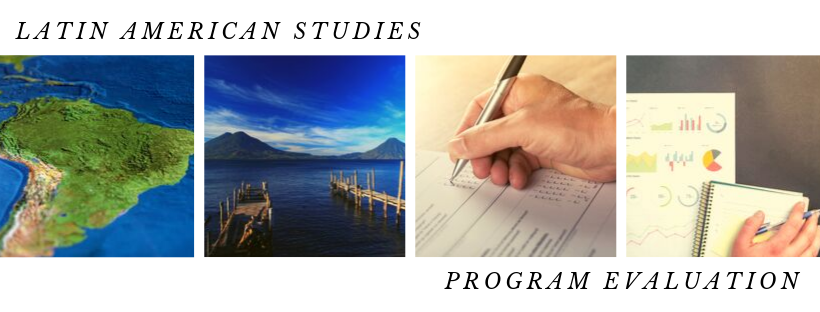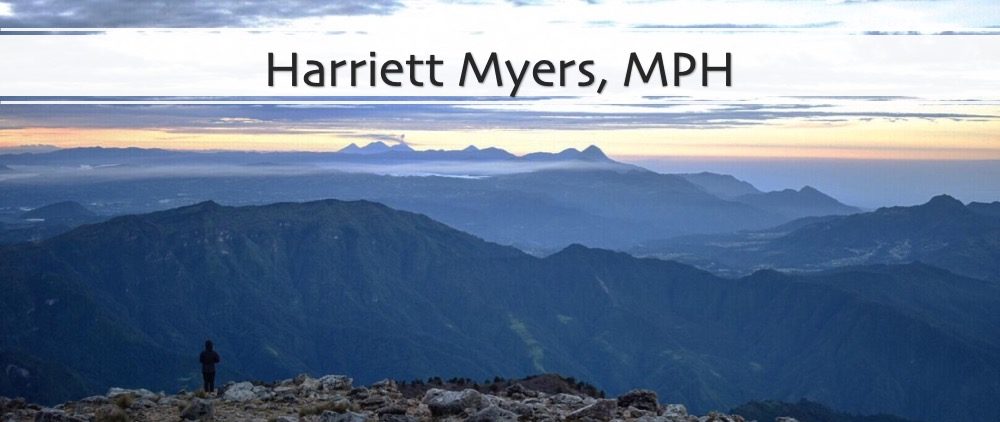 While working towards completing my Master of Public Health degree, I also obtained a graduate certificate in Latin American Studies. Through the certificate I was able to document my regional specialty as well as take interdisciplinary courses and participate in events outside of the MPH program. To complete this certificate, I took 12 credit hours of interrelated graduate-level coursework on Latin America, with at least 6 credit hours coming from outside the MPH program. Through the certificate program I was able to broaden my scope of global knowledge to encompass factors other than health, while concentrating on the Latin American region and gaining expertise in this population. I also have expanded my network to encompass experts in Latin American Studies and beyond.
While working towards completing my Master of Public Health degree, I also obtained a graduate certificate in Latin American Studies. Through the certificate I was able to document my regional specialty as well as take interdisciplinary courses and participate in events outside of the MPH program. To complete this certificate, I took 12 credit hours of interrelated graduate-level coursework on Latin America, with at least 6 credit hours coming from outside the MPH program. Through the certificate program I was able to broaden my scope of global knowledge to encompass factors other than health, while concentrating on the Latin American region and gaining expertise in this population. I also have expanded my network to encompass experts in Latin American Studies and beyond.
Competencies
Vanderbilt University School of Medicine’s Master of Public Health Program is accredited by the Council on Education for Public Health (CEPH). Vanderbilt’s core and track-specific CEPH competencies can be found here.
I have selected 4 competencies to concentrate on that align with my focus areas and expand my knowledge and skills beyond what I have learned in the MPH core curriculum. I am able to demonstrate these competencies through the artifacts displayed below, along with my reflection and assessment on how they have enhanced my education and experience.
Through my experience working with indigenous populations in Guatemala, I developed an interest in the rise of non-communicable diseases, particularly diabetes, among this population and why they do not receive the quality care they need to prevent premature deaths. I wanted to expand this question to Latin America at large to determine if there are similarities among indigenous health outcomes and barriers to health care in the region. Therefore, I performed an extensive review of recent literature to evaluate the emerging diabetes epidemic in Latin America and what challenges Indigenous face. I also reviewed recent innovations and programs that focus on Indigenous peoples, showing how traditional medicine and culture-specific programs can benefit health outcomes while maintaining cultures that have been historically abused and disadvantaged. Writing this paper enhanced my knowledge of the many indigenous cultures in Latin America as well as in the United States. Through reviewing successful interventions and programs I was able to discover innovative ideas to address community health needs and develop SMART goals to recommend actions. As well as enhancing content knowledge, I gained experience in academic writing and analytical thinking while creating this paper.
Access the paper here: Assessing the Emerging Diabetes Epidemic and Barriers to Care Among Indigenous Latin Americans
Through the Essential Skills in Global Health course, I worked with two classmates to develop a protocol for a Healthy Schools child health education program at Primeros Pasos clinic in Quetzaltenango, Guatemala. We partnered with Primeros Pasos from Vanderbilt for the entire semester, and received advice and input from the development director based in Guatemala. The clinic needed a way to evaluate their school health education program to monitor progress and show value to funders. This was a unique experience because both myself and one of my classmates were planning to do our field experiences at this clinic the following year. Therefore, we knew we could turn this protocol into a project we could build on and carry out during out field experiences. We began by reviewing the available literature on child education evaluation strategies and worked with the Primeros Pasos to determine which strategies would be feasible in the clinic’s current setting. Through this information we developed pre- and post-tests, a scoring mechanism, and a reporting tool for the outreach coordinator to use throughout the program.
Creating this protocol was a new experience that I would not have been able to do without this course. Working with an established international organization helped me put the skills I was learning in class into perspective, and work with real stakeholders to produce a tool that was relevant and useful for the clinic. Through this project I also enhanced my ability to work in interdisciplinary teams and advanced my critical problem solving skills. I was also able to increase my Spanish language proficiency by translating current documents from Spanish to English, and conversely translating our new tools to Spanish for clinic use.
Access the protocol here: Primeros Pasos Protocol
Because of my interest in monitoring and evaluation practices, I enrolled in a Program Evaluation course. Through this course, my team members and I partnered with Urban Green Lab to develop an evaluation of their school education training program. Urban Green Labs trains educators in Davidson county and surrounding areas to teach sustainability and sustainability practices in their classrooms. As an organization with a very small staff, they do not have many resources to create and implement a quality evaluation system.
Through this project I gained experience working in interdisciplinary teams as I collaborated with students from other programs in Vanderbilt as well as professional representatives from Urban Green Lab. In the development of our final evaluation instruments, we also developed a stakeholder analysis, PEST analysis, and logic models to inform our evaluation methods. This allowed me to develop a well-rounded and in depth understanding of the value and uses of program evaluation. I also now know what consulting for an organization is like, since that is essential what my team and I did for Urban Green Labs. I’d like to acknowledge my team members and Diana from Urban Green Lab for the time and hard work that went into this project.
This is in progress and will be posted when final.
During my field experience at Primeros Pasos Clinic in Quetzaltenango, Guatemala, I was able to participate and experience a strategic planning summit that evaluated and planned each aspect of the organization for the next three years. Not only were the meetings conducted in Spanish (a learning experience of it’s own), but every member of the organization including board members, physicians, the volunteer coordinator, development coordinator, financial director, and volunteers were in attendance to evaluate the work environment and the quality of the programs. The mission statement was also amended and the members hired a new general director of the clinic. These meetings and the resulting discussions and actions were some of the most informative and invaluable components from my field experience. It is one thing to learn about how organizational structures can differ from culture to culture, but it is entirely more informative to experience the inner workings of an international organization first hand. I believe this has instilled a further understanding of international organizations that I will be able to use in my professional career whether that involves consulting with an international organization, evaluating international programs, or even working with a new organization and understanding the differences of work culture that may exist. Attached is the blog that describes what I learned while working at Primeros Pasos.
Read my post here: Primeros Pasos Blog




